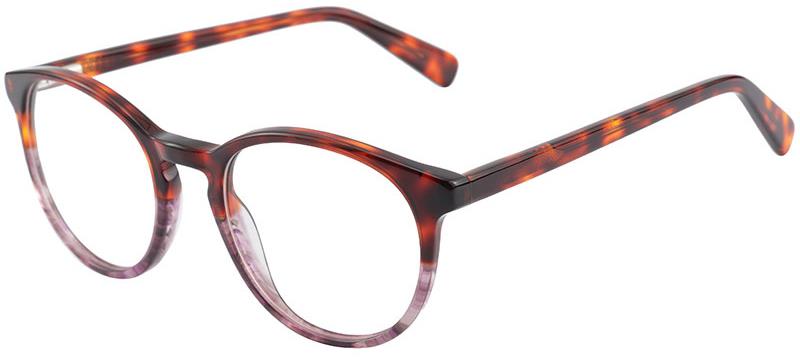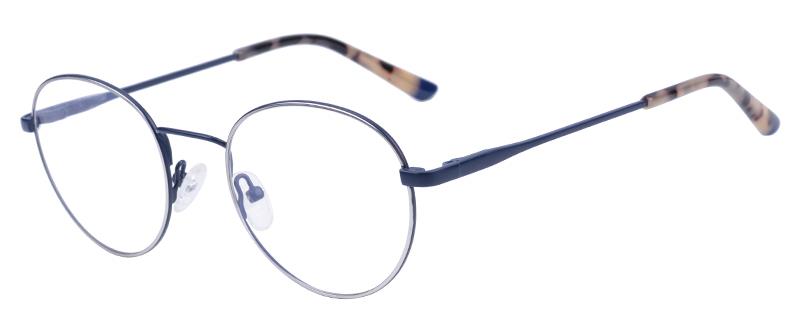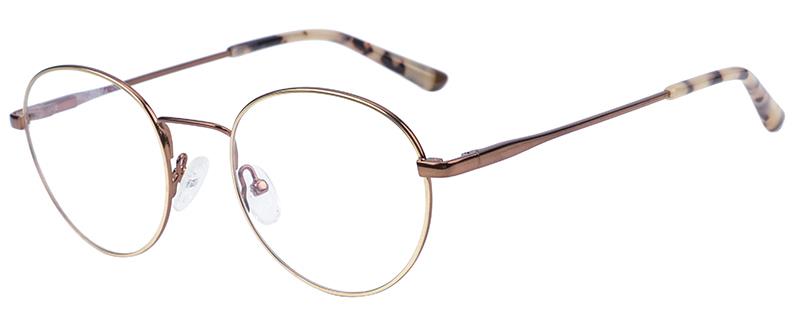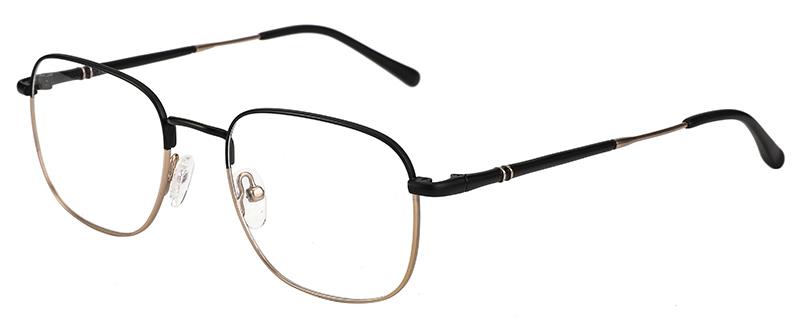‘Most opticians I talk to would offer their own brand of eyewear if they could,’ says Brett Waugh managing director of Eyewear Direct. After 17 years in the optical business that is exactly what he decided to do.
Ashton Riley takes its title from the first two names of Waugh’s young son. The decision, Waugh admits, was because as a brand name Brett Waugh is ‘a bit rubbish’. While choosing his son’s name is a little bit personal he says it reminds him where it all started.
As well as a new brand Waugh has also based Ashton Riley on a novel business model which he hopes will appeal to independent opticians. He says independents are quite often used by frame companies to build a brand but they never get the rewards for their hard work. The idea behind Ashton Riley is not only to offer the brand exclusively to independents but to incentivise them for buying the products. Waugh also wants to create a brand its customers feel attached to by taking feedback from them to create the brand’s character.
The idea behind Ashton Riley’s model came from Waugh’s close working with suppliers and independent’s while working as a wholesaler. ‘The conclusion I came to was that given the choice most opticians would do their own brand,’ he says. By engaging with the customers the service and product can be aligned with what they want and their stamp put on the product. Ashton Riley will work by offering points to customers when products are ordered or for other actions such as new stockist referrals. Independent opticians will be rewarded with discounts when ordering further stock. Taking the concept further, Waugh says those points will eventually make the customers shareholders in Ashton Riley.
‘More points mean more discount and in the longer term when the brand becomes self-sufficient we will separate it into its own limited company and independents will get shares. The idea is to change the focus of this brand so that it’s not just one they have in their practice but one they own.’ In the early days Eyewear Direct will fund the start up, adds Waugh.
The detail of the level of ownership will depend of the volume of products sold and how quickly the brand develops but Waugh hopes the process will be ready to release 20-30% of the company in the form of shares within the next one or two years. ‘The detail will depend on the cost of setting it up.’
Waugh says he wants the brand to be in around 500 independent practices to create scale but offer differentiation for participating practices. From its launch in mid-November Ashton Riley had 25 customers within 10 days and Waugh is looking to add five a week to allow the company to grow organically. The first job is to grow the stockist network. ‘We will have boundaries but I don’t want it to be too exclusive,’ he says.

Waugh has experience from all sides of the eyewear business having worked for Fabris Lane for 15 years. He started in the IT department working his way through the business to become sales director. When the company was sold to Essilor and he took the role of sales director of FGX [Foster Grant] and Fabris Lane but eventually decided that he wanted to do his own thing.
He says Essilor is a hugely successful business from which he learned a lot: ‘I just preferred the idea of working for a company that wasn’t an international conglomerate. I had always worked in a collaborative way with customers.’ After a stint with another eyewear company he decided it was time to do his own thing. ‘I wanted to grow my own business that had my stamp on it and with 17 years in the industry I felt I had enough experience.’

He says he did ‘pretty much every job’ during his time at Fabris Lane placing him in an ideal position to work with clients on everything from design through manufacturing, shipping, wholesaling and sales.
Waugh set up Eyewear Direct to work with businesses on private label frames and with brands to produce product. Eyewear Direct also wholesales for LookLDN, which also has Fabris Lane connections. This brought him back into contact with the retail optical business which enabled him to better understand what independent opticians were looking for.

‘The biggest element of what I wanted to do was definitely to be open with people,’ he says, adding that there a lot of ‘smoke and mirrors’ going on in the frame business. ‘I want to work with customers and discuss what is going on and how we can handle things together to make it successful.’ He says this is not just sorting out problems but developing the product, pricing certain elements.
‘Some customers don’t realise where the costs are,’ he says. ‘For some of the cheapest products [in the market] the packaging is the most expensive part.’ His approach is to share all of the information in the most sensible way. ‘If it’s working for them it’s working for us.’ And that is not about making it cheap. He says the eyewear business is very competitive and there will always be someone offering product cheaper. If you are only interested in price you may as well go direct, he says. Most independents know what they want and that will need some level of discussion. Ideally that would be own brand product. While there are scale issues in bespoking brands for individual independents Ashton Riley offers a way forward.

Eyewear Direct will continue to work designing and producing for private labels and working with brands to design and manufacture product. Waugh hopes by developing Ashton Riley he can build a new brand that will be built and co-owned by independent opticians.
The market is ripe for people to act differently. ‘I was driven by the disruptive nature of businesses like Uber or Air BnB. I felt that the market was getting smaller and smaller, there’s less and less choice in who you can deal with and the independents get squeezed. The key point of difference for us is the ownership.’
He says he wants the brand to become widely recognised but phase one is building the network. Next will come promoting the brand and perhaps expanding Ashton Riley into other areas such as accessories, like wallets.
The product
He describes the product as saleable, commercial bread as butter product, not that he likes any of those descriptions: ‘Not too crazy, it’s quality, interesting detail, good colours. We know this is product that will sell.’
Through Eyewear Direct he works with a US-based British designer, a design house in China and a Chinese manufacturer and he has created a collection that uses that expertise without crossing over with other styles and projects.
What he can bring, he says, is 17 years of experience in the eyewear business to create a commercial product wholesaled and retailed in an efficient way. He expects Ashton Riley’s stockists to be varied and it already has clients in areas as diverse as central London and Norfolk. ‘It could be their highest priced brand or their lowest.’
The starting collection of 12 styles and 25 SKUs are all priced at £20, a figure he said took a long time to arrive at. ‘We could sell this for more,’ he says. Waugh wants the brand to be saleable and alongside some classic shapes are some on trend round eyes and large feminine metals. He is adamant that this is not a brand to sit in the window but one that people will buy.
Materials are stainless steel and acetate alone and in combination. Detailing includes interesting, yet commercial colour and touches such as wood effect patterning. All of the frames are endurance tested and all come with a 12 month warranty to endorse the quality claims.
Waugh has been in business long enough to know that every practice is different but believes the product will sell and the brand offers a fresh proposition to practices. ‘I’m not saying this is the only brand you should stock but that it should be one of your collections.’ He asks practices if they have a brand that is slow selling and suggests they swap it out for Ashton Riley.
He is hoping the product will prove successful and the shared ownership makes the difference: ‘If they have to pick from two brands then the ownership thing will tip it over the edge.’
Waugh wants to be seen as different but eschews the disruptor tag. ‘I am not Uber or Air BnB but there are a lot of people who aren’t too happy about the way the industry works at the moment. I wanted to try something a little different. You never know someone might copy us one day.’
